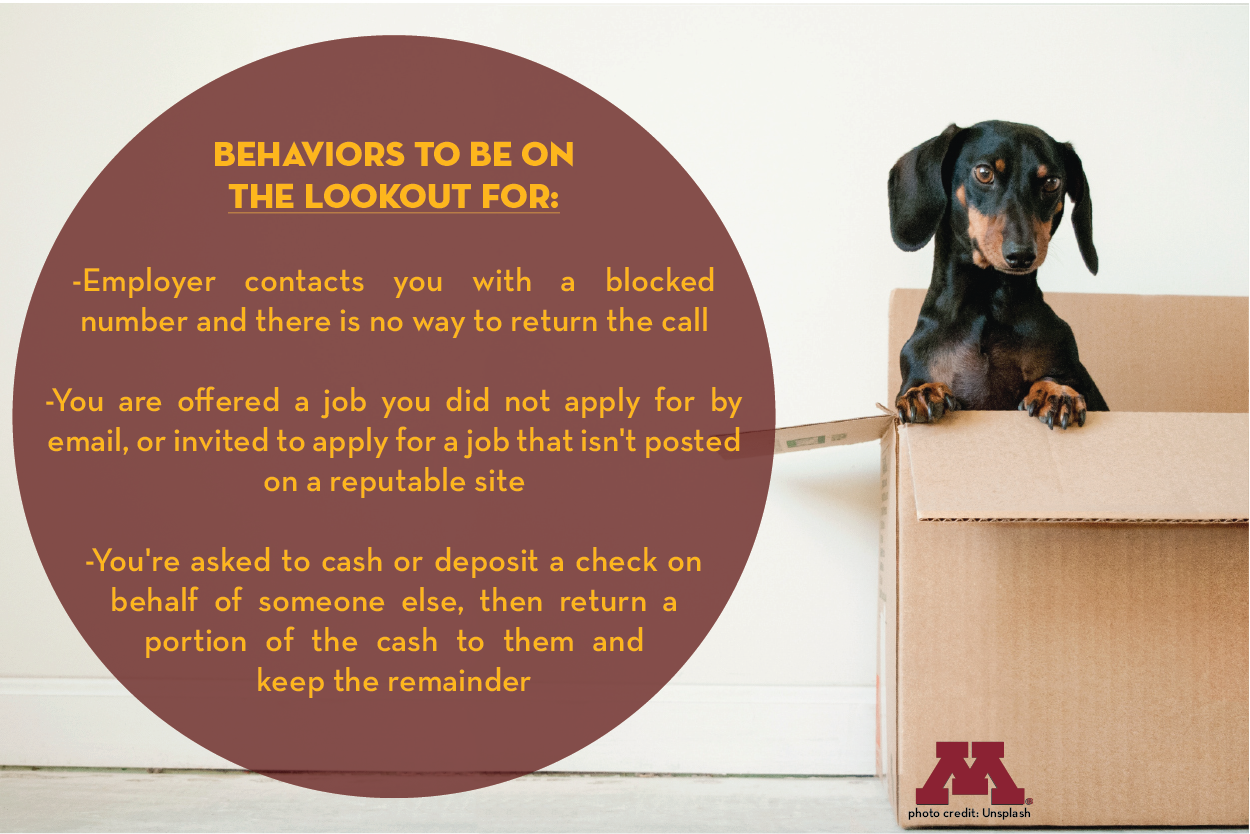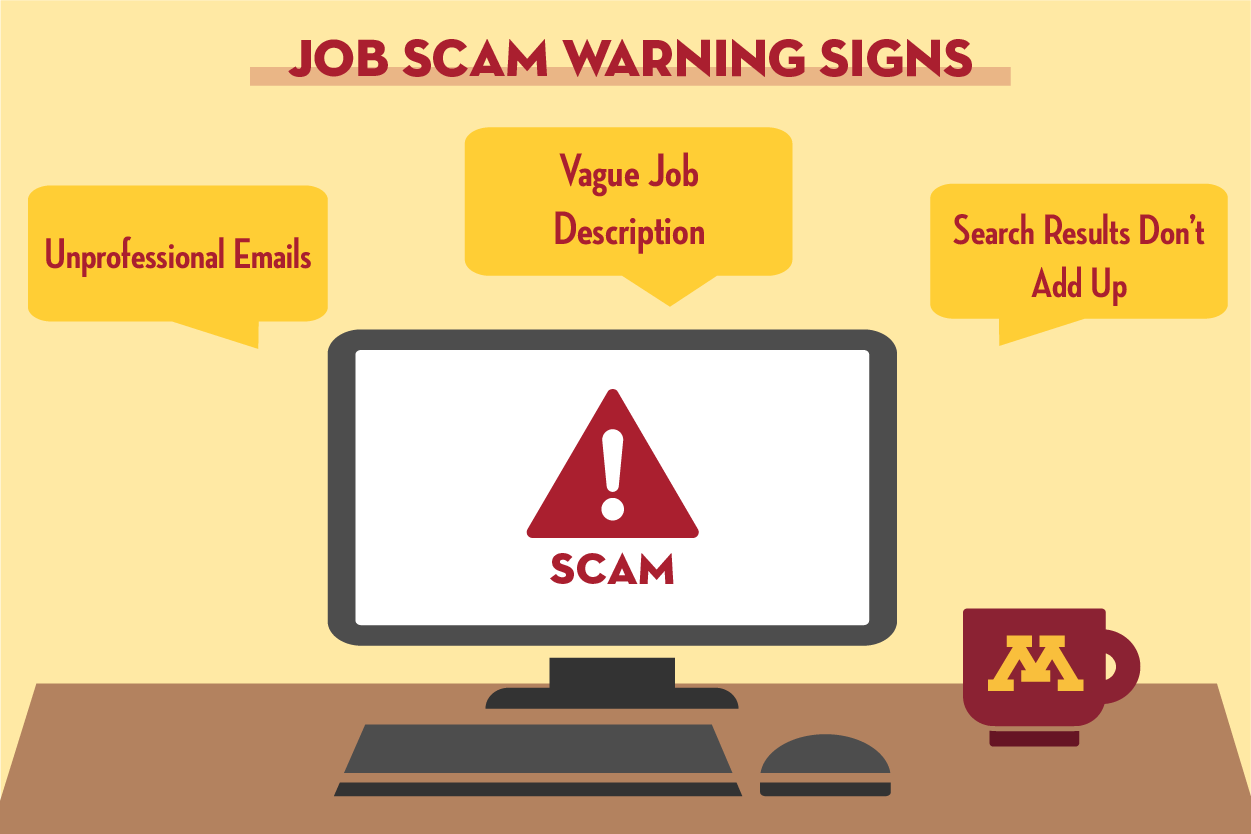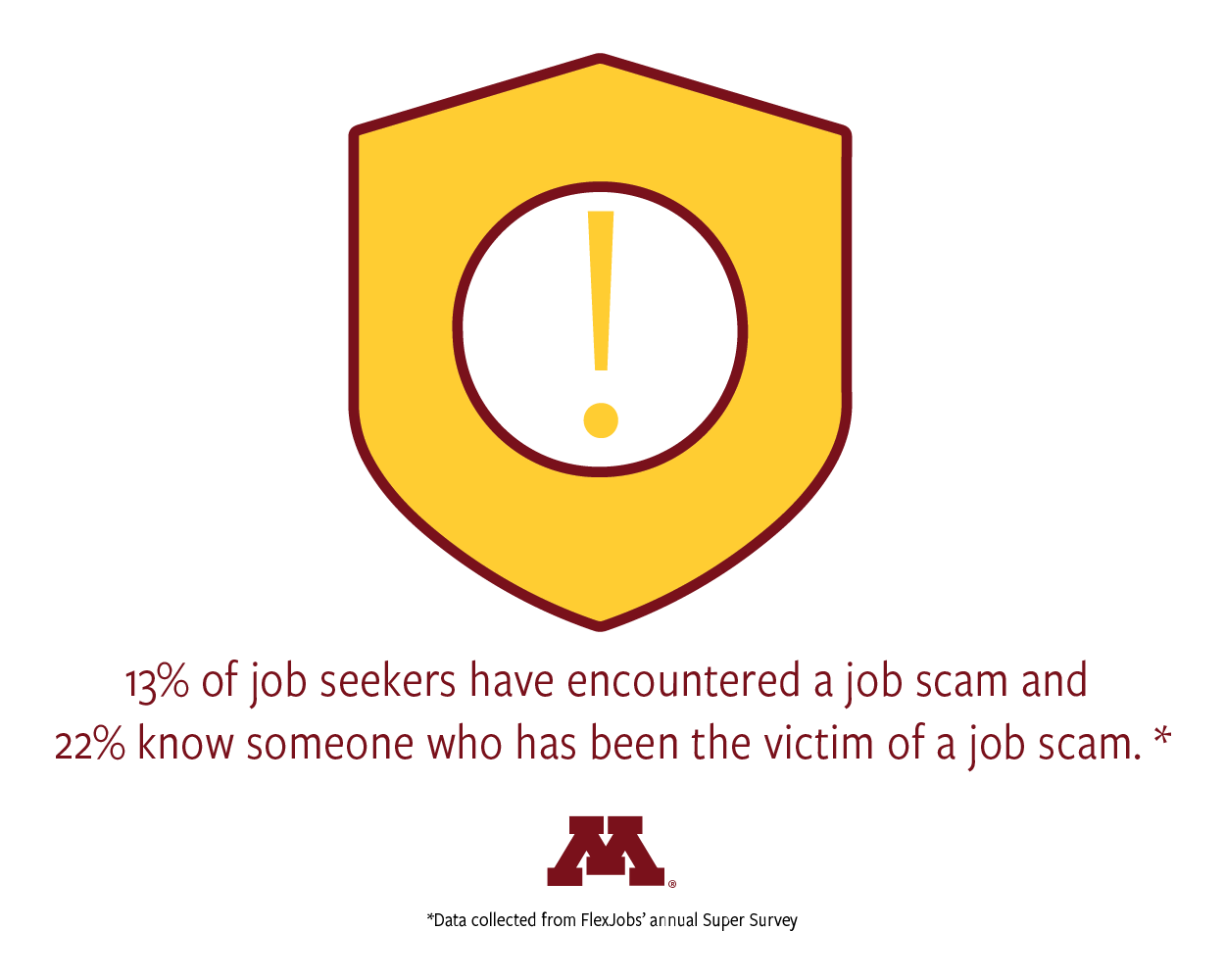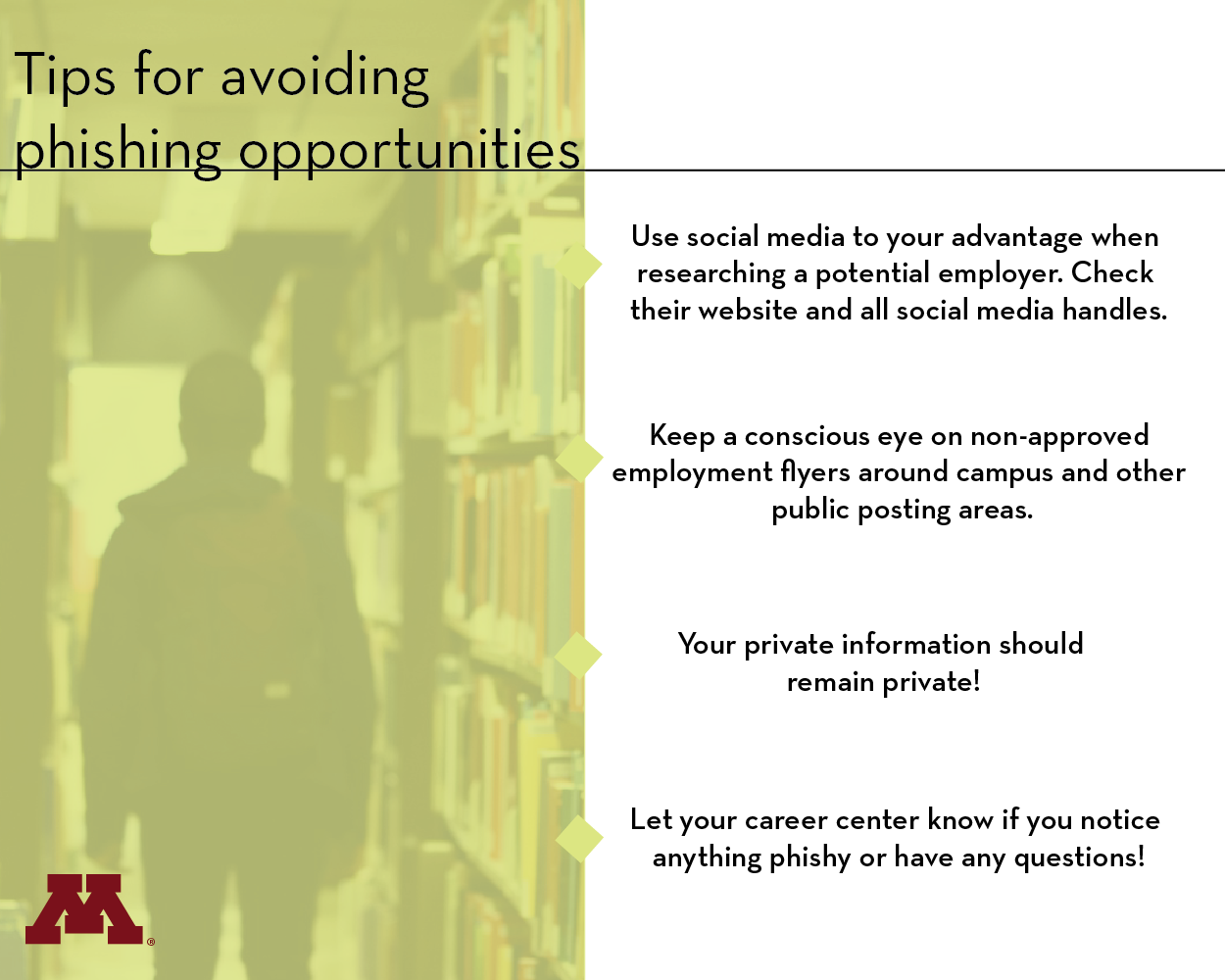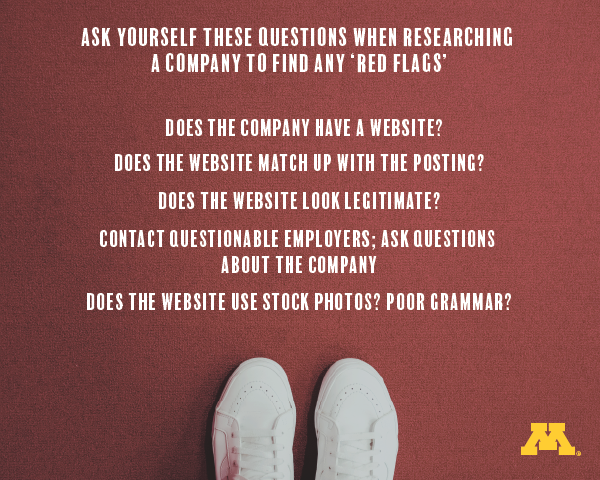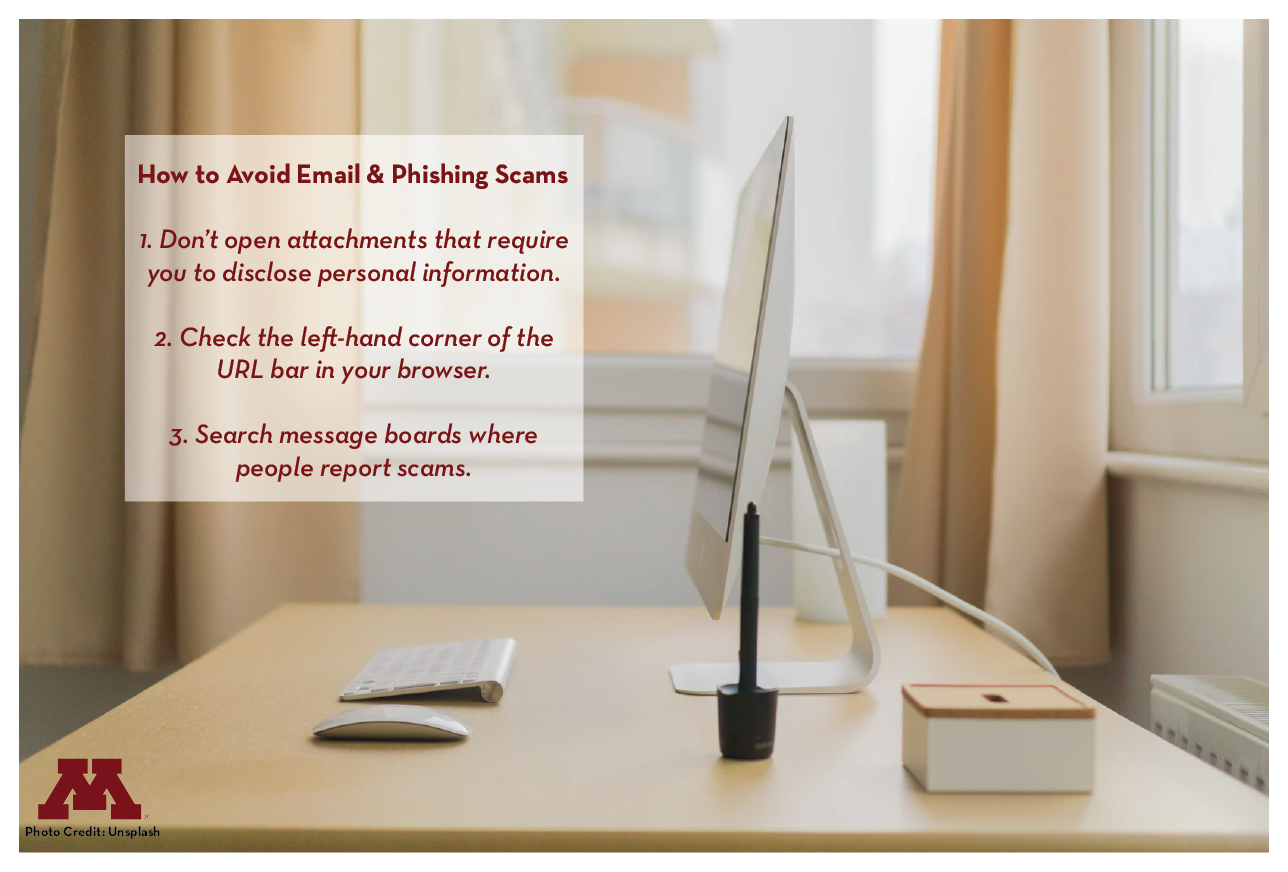Scammers are targeting students at universities across the country with fake job opportunities. Please be cautious in responding to any job opportunity that seems too good to be true.
Common Warning Signs include:
- Requests for financial/personal information
- Unusal salary for the position or experience required
- Email addresses that don't match the employers domain (ex. ending in @googleinc.com rather than @google.com)
- Unusally fast resume reviewing process
- Offering a job without a face-to-face interview, whether that is virtual or in-person
- Giving an offer immediately after an interview
- Grammatical errors on the website or job posting
- Short or vague job description
What to do if you suspect a scam:
- If you paid any money to a scammer, immediately contact the company you used to send the money, report the fraud, and ask to have the transaction reversed, if possible. For specific advice on how to reverse different types of payments, read the FTC's What To Do If You Were Scammed.
- Contact your career center and share your concerns.
- If you have received an email from a suspicious source, forward it to [email protected]. Let them know you believe it to be fraudulent.
- Search for the scam on google, reddit, and/or the FTC.
To learn more, we've collected our social media posts on job scams and posted them below. Each image is linked to an article with relevant information. If you have any questions, please reach out to career services - we are here to help.
